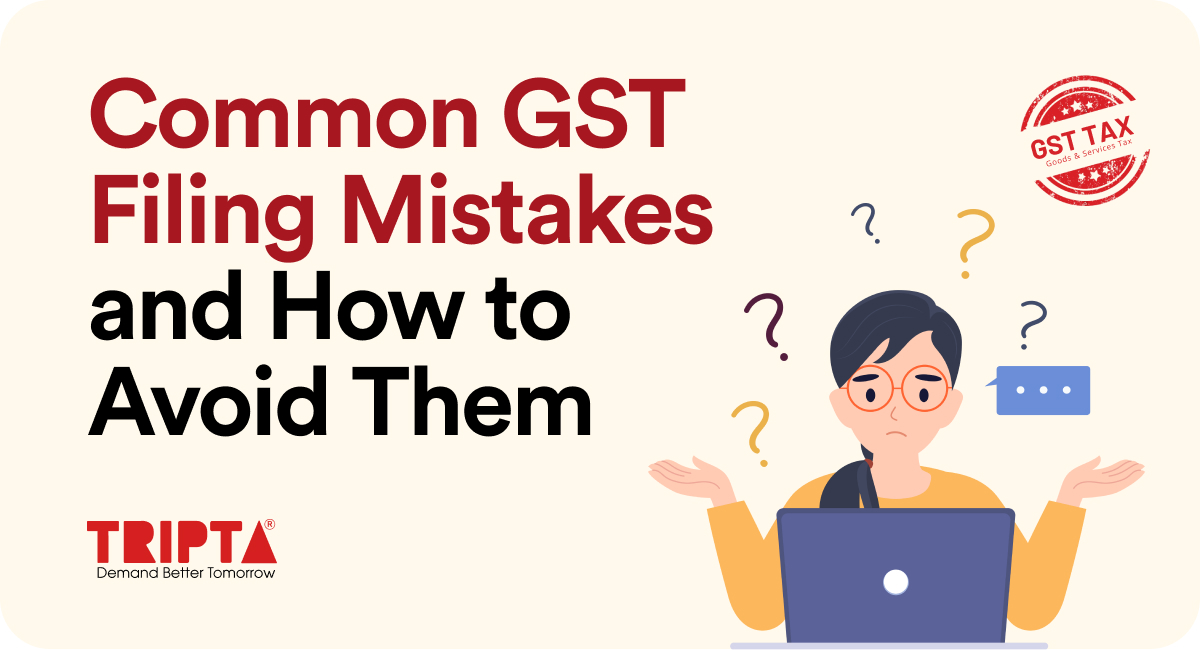
For many businesses, filing GST returns feels routine—until it doesn’t. A minor oversight can lead to penalties, delays, or even audits, disrupting the smooth functioning of operations. But here’s the good news: most of these mistakes are easily avoidable with a bit of attention to detail. Let’s walk through the most common GST filing mistakes and how to steer clear of them.
Think of GST returns as a puzzle, and invoices are the pieces. If even one detail—like the GSTIN, invoice number, or HSN code—is incorrect or missing, the entire puzzle falls apart.
How to Avoid: Double-check invoices before filing returns. Use accounting software that automatically validates details to save time and effort.
Imagine claiming a tax credit that doesn’t reflect in the government portal. Not only will your ITC claim be denied, but it might also raise red flags.
How to Avoid: Regularly reconcile your purchase records with GSTR-2B before claiming ITC. Stay in touch with suppliers to ensure they upload their invoices on time.
Deadlines are sacred in GST filing. Missing them means paying late fees and interest, cutting into your profits.
How to Avoid: Set reminders or use GST-compliant software with auto-reminder features. Filing a day early is always better than scrambling at the last moment.
Different products and services fall under different GST slabs. Applying the wrong rate can lead to underpayment or overpayment of taxes.
How to Avoid: Keep an updated list of GST rates relevant to your business. Regular training for your accounts team can also help avoid such errors.
RCM might sound complex, but it’s crucial to account for it correctly. Many businesses overlook transactions that fall under RCM, leading to non-compliance.
How to Avoid: Identify all transactions subject to RCM and report them accurately in your returns.
Non-taxable supplies still need to be reported in your GST filings. Skipping them can lead to inaccurate returns.
How to Avoid: Maintain a record of all types of supplies—taxable, exempt, and nil-rated—and ensure they’re properly reported.
Credit notes are often mishandled, resulting in discrepancies between sales figures and GST returns.
How to Avoid: Ensure credit notes are properly adjusted in the relevant GST return for the same period.
Mistakes happen. The real issue is failing to correct them in subsequent filings, which can compound the problem over time.
How to Avoid: Use the amendment options provided in GST returns to rectify errors promptly.
Filing GST returns doesn’t have to be a challenging process. By avoiding these common mistakes and adopting best practices, businesses can ensure smooth compliance and save time, money, and stress. Think of it as routine maintenance, small efforts today can prevent major issues tomorrow.
If GST still feels overwhelming, consider consulting a tax professional or using automated tools to make the process seamless. After all, being proactive is always better than fixing costly errors later!
Hope this article makes GST filing simpler for you. Have any questions? Feel free to ask!
Leave a comment